The Ministry of Defence has released its annual UK Armed Forces Equipment and Formations report, providing an overview of the military’s current assets across land, maritime, and air domains as of 1 April 2024.
The report details the composition of the UK’s military hardware and formations, as well as trends in force structure and equipment modernisation.
Maritime Forces
As of April 2024, the UK’s maritime forces consisted of:
- 10 submarines, including six nuclear-powered attack submarines (SSNs) and four ballistic missile submarines (SSBNs).
- 70 vessels in total, with 57 ships in the Royal Navy Surface Fleet and 13 vessels in the Royal Fleet Auxiliary.
The report also highlights a continued shift in naval capability, with investments in future platforms such as the Type 26 and Type 31 frigates, alongside the Royal Navy’s increasing emphasis on autonomous systems.
Land Forces
The British Army maintains a substantial fleet of combat vehicles:
- 3,316 armoured vehicles, including 843 Armoured Personnel Carriers (APCs), 1,513 Protected Mobility Vehicles, and 960 Armoured Fighting Vehicles.
- 32 Regular Army infantry battalions and 16 Army Reserve battalions.
The increase in combat equipment numbers is attributed to the introduction of new platforms such as the Ajax armoured reconnaissance vehicle and additional Jackal patrol vehicles.
Air Forces
The Royal Air Force and Fleet Air Arm collectively operate a diverse fleet of aircraft:
- 556 fixed-wing aircraft, including 137 Typhoons, the most numerous fast jet in service. The retirement of the Hercules C-130J transport aircraft was noted as a major change.
- 268 rotary-wing aircraft, with 54 Chinooks remaining the most common type. The introduction of Apache AH-64Es continues, while older Gazelle helicopters have been retired.
- 183 Uncrewed Aircraft Systems (UAS), supporting intelligence and surveillance operations.
The RAF’s fleet modernisation is evident with the transition towards next-generation platforms, including the F-35B Lightning II and investments in unmanned systems.
The report also references militarily useful British-registered vessels, which could be requisitioned if needed. The total number of such vessels decreased from 495 in 2022 to 475 in 2023, with declines in product and chemical tankers.
These figures highlight the UK’s ongoing defence transformation, with sustained investment in modernisation programmes such as the Future Combat Air System (FCAS) and further integration of autonomous and digital warfare capabilities.
The full report, including data methodology and breakdowns of equipment formations, is available on the UK Government website.



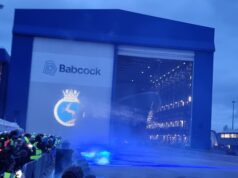
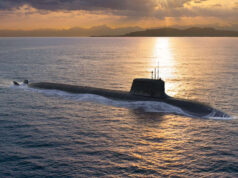
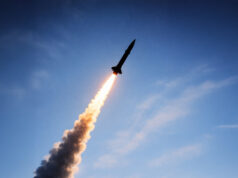
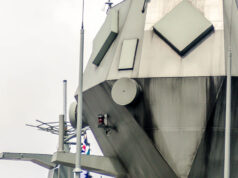
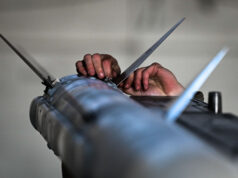
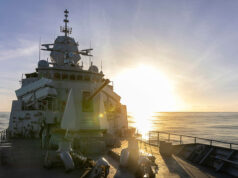
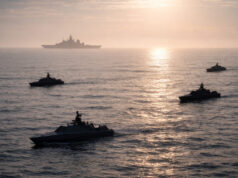
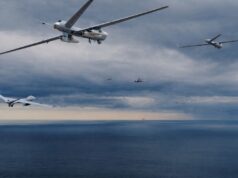
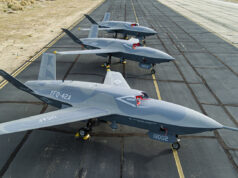

I don’t think the AH64s included in the RAF/RN stats will go down well with the AAC😀
True. No staff check done on this, clearly.
I’m also seeing a lot of UAS in the RAF. That includes 45 Watchkeepers, which I had thought to be Army. Almost all the rest are hand-thrown Pumas (including those of other services) and 39 Wasps. Are these Wasps the same type that were developed for Ukraine? I thought they were maritime.
Watchkeeper was army. 47 RA.
The report says vessels not ships, because a lot of those, like the 18 vessels of the Archer and Cutlass classes, are better described as boats. I’m not sure if the two “survey ships” are Scott and Magpie, but I wouldn’t call Magpie a ship either (sorry to the crew, but it’s a deffo a boat).
The report numbers are from April last year. Next month we cancel six more ships: two LPDs, two tankers and two frigates. By April this year the Royal Navy will be down to 32 ships greater than 100 tons in the surface fleet, plus 9 submarines. The RFA will have 3 oilers (plus two laid up), 2 LSD (plus one laid up), whatever Argus is called these days, and 2 new mothership conversions. Finally, I’m not sure where/whether XV Patrick Blackett is supposed to be accounted, but I think it should be.
That will be 49 vessels >100 tons in both RN and the RFA, surface and subsurface. (I’m not counting the laid up ships nor Victory nor Bangor.)
Victory is to be up-armed and towed into the Thames Estuary. Three sailors with surplus Stingers will provide air defence for London and the Home Counties.
Don’t joke but it’s almost that bad. Tories should have begun a crash rearmament programme the minute Putin invaded Ukraine. Four words
Asleep at the wheel.
We shouldn’t be cancelling the two Wave class, they should be retained and better yet refitted and manned and pushed back into service. Ditto both LPDS they represent European NATOs premiere amphibious force and the best landing ships. They must be retained as they are the principle way we would deploy, under heavy aerial protection, reinforcements to Norway, Baltics etc.
What is the status of the JTLV procurement? cancelled or still on hold?
Well in 2008 the UK had over 500 helicopters & that was said to be too few.
There was about that (without the RN obviously) based in Germany when I was in!
Vessels don’t make me laugh. They deliberately left out the word warship to make it sound better
Interesting the 32 Battalion count. I keep counting 31.
Gib Reg.
Ya. makes sense.
I believe your figure mate.
BTW the army website says that the term for the Boxer battalions is to be ‘Heavy Mechanised Battalions’.
Makes sense. It is a heavy vehicle. The Foxhound Bns were light Mechanized at one point.
Yes, MoDs figures are often confusing. Adding Gibraltar Regiment is a tidy way of boosting the total.
I found it interesting there were already 128 Ajax variants in service as of April last year.
Surely this means it’s going through final testing and will reach IOC very soon.
If not already.
Absolutely. Deliveries have been ongoing to 3 regiments as reported in January. Potentially more now.
So they are formally getting rid of the the AI battalions, such a big mistake.
Agree. If possible, keep Warrior.
Yes. The Warrior battalions are going. Surprised you had not heard. An MoD announcement was made way back in March 2021 that Warrior would not be upgraded (WCSP cancelled) but would soldier on unmodernised until ‘the middle of the decade’ when it would start to be replaced by Boxer MIV/APC. An AI battalion is by definition equipped with IFVs, not APCs.
It’s all about saving money, not about what the army needs.
Whoever in MoD put this report together does not know what an AFV is, or at least does not know that an APC is an AFV.
An AFV is a wheeled or tracked armoured vehicle (the design used to have a 3 or 4 digit FV number, not sure if that is the case still). An AFV can have any role (they are not just the fighty wagons), thus a CRARRV is an AFV, as is a CR2, as is a Warrior, as is a Trojan AVRE.
All APCs are AFVs thus you cannot say that the BA has x APCs and y AFVs. You can say BA has x APCs and y ‘other AFVs’.
Is there some deliberate double counting going on?
We need to see the spreadsheet, which is usually published in June anually, but was not for some reason published last June.
You can download the spreadsheet from the website, Graham. It offers the option of HMTL or excel.
Many thanks Sam. I will be interested to see how many tube artillery systems are declared. What is the ‘as at’ date?
It’s of April 2024.
Go to gov.uk site under British Armed Forces formations and equipment 2024.
Click one of the links that says supplementary tables.
It’ll take you to the page with options to download as excel or view online.
It’s got 39 AS-90, but it’s only correct up to April.
Sam, I am on the website and see no link to the s/sheet. Do you mean the App or FB page or X/Twitter site?
I replied to both messages above mate.
Thanks Sam.
Not that big, but how small are the British armed forces.
Plot twist.
After all the media hype, most of europe just tell the leaders to fight their own war. 😮
Result.
War is over in minutes, life carries on, no one gets hurt, no recovery is needed, the corrupt politicians of Europe get traded for other corrupt politicians, Just like in any and every election.
But wait… theres more!
All the infrastructure both physical and economic is untouched and intact. Business as usual.
REMEMBER FOLKS
All wars end when politicans are forced to fight it themselves.
I kind of wonder if we just let the enemy have the ones who started war, we might definetly speedhack the land back to peace time 💪
SIGNED
person who believes you don’t have the right to start a war, force others to fight for your twisted cause whilst you run in the opposite direction and hide safely inside a personal bunker and get rich from a tragedies and extreme suffering.
Okay. I suggest you start by telling Putin to go fight his war himself then. After all he started it.
Little detail you forgot I’m guessing.
LOW, go tell the politicians. Until then, we have no option.
And troops on the ground? Little more than what you could fit inside Wembley Stadium. Such a sorry state of affairs.
A report such as this has little meaning to someone like me who has no military experience so my question would be what is the maximum capability it has to fight a war alone against the most likely aggressors and then in conjunction with it’s partners presumably NATO
Given that the USA and NATO are it’s partners how is it structured in conjunction with its allies or do they work independently from each other in which case one would question the viability of a cohesive relationship.
As such in the eventuality of such a conflict Britain would presumably act as a rearguard force therefore would need a force capable of long-range projection rather than say armoured. vehicles should as tanks were I think it would be more prudent for a country like Germany to have significantly more tanks
So in simple terms is NATO designed as one force or a bunch of individuals that it is hoped somehow would work after all what would be the point of Britain having a 1000 tanks and say Germany having none.
So what I would be looking for is not necessarily the size and type of equipment Britain has but more so how it’s integrated with its partners and then its potential effectiveness
Did Chat GPT write that comment for you?
Lol. Looks like it.
Yaa, yaa, yaa. Size is important of course. At this very moment, history is being made by old Donnie with his buddy Vlad. More important than more weapons is which side are we on?? Is UK going to use its weapons on US and their new ally Russia or use its weapons with US/Israel against Ukraine?? Nato now is dead for all practical purposes, how can any sane leader have any faith in it. No one must under rate the astounding catastrophe in the Oval Office with old Donnie, Zee, JDV. Surprising, the meeting did not devolve in body slams and metal folding chair whacks as in WWE rassaling. The meeting changes the World Order. And what is next, annex of Canada, Greenland? Gaza into a luxury country club?
I don’t think NATO is dead. Trump has not declared he is leaving the Organisation, but ENATO does need to spend more. That is where we are at. European nations need NATO.
Makes for grim reading. The rot has to be reversed.
After last night’s activities in the Oval office, I’d say Putin will become more emboldened. He will fight the war out in Ukraine to a grinding costly victory in 6-12 months.
Then what, re-equip. Rearm and go again. Georgia, the Baltics, parts of Poland, Maldova, Slovakia, Bulgaria, Romania all at risk.
Defence budget has to go to 3% minimum by 2028 the ramp up needs to begin yesterday
RAF needs an order for at least 48 more new tranche 4 typhoons. Hold the tranche 1s they cannot be disposed of until new tranche 4s come online.
More Poseidon MPAs x5-6
All 5 Wedgetails now with plan to get to 9 airframes within next 3 years
Another batch of the planned for 27 F35Bs
All C2s to C3 standard and fit them all immediately with trophy aps and make sure thousands of submunitions for Trophy are available.
Fit Trophy on all boxers and every armoured vehicle entering a combat zone
We need a new IFV- SO either Ascod with 40mm turret or CV90 or we put warrior through a crash refurbishment programme, I’d prefer new vehicles being purchased at speed.
Archers SPGs x76 and continue with purchase already announced for additional MLRS- order tens of thousands of rounds of munitions for MLRS
GBAD- put land Ceptor batteries up from proposed 9 to 18 (yes double them) add SAMP/T for UK air defence x8 batteries to provide UK with an interim ballistic and cruise missiles defence capability backing up typhoon.
We need a radar guided guns solution so either mobile Bofors 40mm or phalanx. Once selected dozens of these platforms need to be ordered to protect the army in the field and key defence sites in UK and abroad.
Counter drone- turrets of 4×4 vehicle chassis, can be machine gun with additional ECMs and ECM abilities. The French army are ordering dozens of such vehicles to protect their army in the field from drone swarms cheaply , British army needs the same.
Manpower- has to go up. Probably by around 10,000 troops for the British army regulars and 20,000 more for the reserves.
Fix the recruitment and retention issues give every member of the armed forces a flat £10k/ annum pay rise and invest billions to repair and renew accomodation.
Royal navy must have an additional 2-4 more type 26s and another batch of 5 type 31s.
Retain both Albion and Bulwark we cannot have a loss of another key capability at this time. Those 2 assault ships represent the very best amphibious heavy life European NATO has and scrapping them without a ready replacement is now obviously folly.
Things change and HMG need to accept the geopolitical situation has changed and both ships should undergo refit, repair and be crewed, yes that means more RN manpower.
Push Aukus/ SSNr into production asap and get them built concurrently with the Dreadnought class subs.
If European NATO willing to fund additional dreadnought class then great put the number upto 6 (2 more) with the option of the new subs being internationally manned but owned and principally operated by the RN. Just an idea.
In summary. Holly crap we need to get our house in order and quickly. If it was upto me, which I know it isn’t, I’d order a review of all benefits recipients within the next 6 months with the aim to stop benefits and force those physically and mentally able to work back into work, saving £40 billion a year and funding all of the above and more.
Surely the most relevant statistics would be the provide details of the actual quantities of military equipment and personnel that is combat ready rather than an overall, somewhat irrelevant, report that combines non combat personnel and equipment with combat ready. I can appreciate the many reasons why the report “muddies the waters” but one cannot get away from the fact that Britain’s military is in dire straights. Britain does not have sufficient stocks and numbers available to fulfill its military requirements. Those that have read the various books (authored by ex serving military servicemen) will appreciate the problems faced during The Gulf and Falklands wars and operations over Libya. For decades our military has had to “wing it” when called to arms.
Combat ready figures are usually classified. An enemy can gain much useful info from that. Occasionally an exception is made. A year ago MoD declared to HCDC that 157 tanks were combat ready or nearly so.
There may be 57 ships in the surface fleet but only a fraction of them could be classed as warships , 8 frigates , 6 destroyers and 2 aircraft carriers , the rest are patrol boats or support ships. It doesnt make very good reading and highlights the desparate need for more frigates , destroyers and subs to make our once proud Royal Navy a credible force again . The French and Italians now have more surface comabatants than we do
Too little. It was too little in 1998, 2008, and 2018 and it’s still too little today. The “£8 billion” 2.5% brings us too little. Until then people who like to post on here (as we see with Lord of War) and other places saying “I will just refuse to join up”, “Just refuse to obey orders” and realise that war will break out whether it is one village next to another, tribe next to another, a city, country, alliance. Wars will always have to be fought